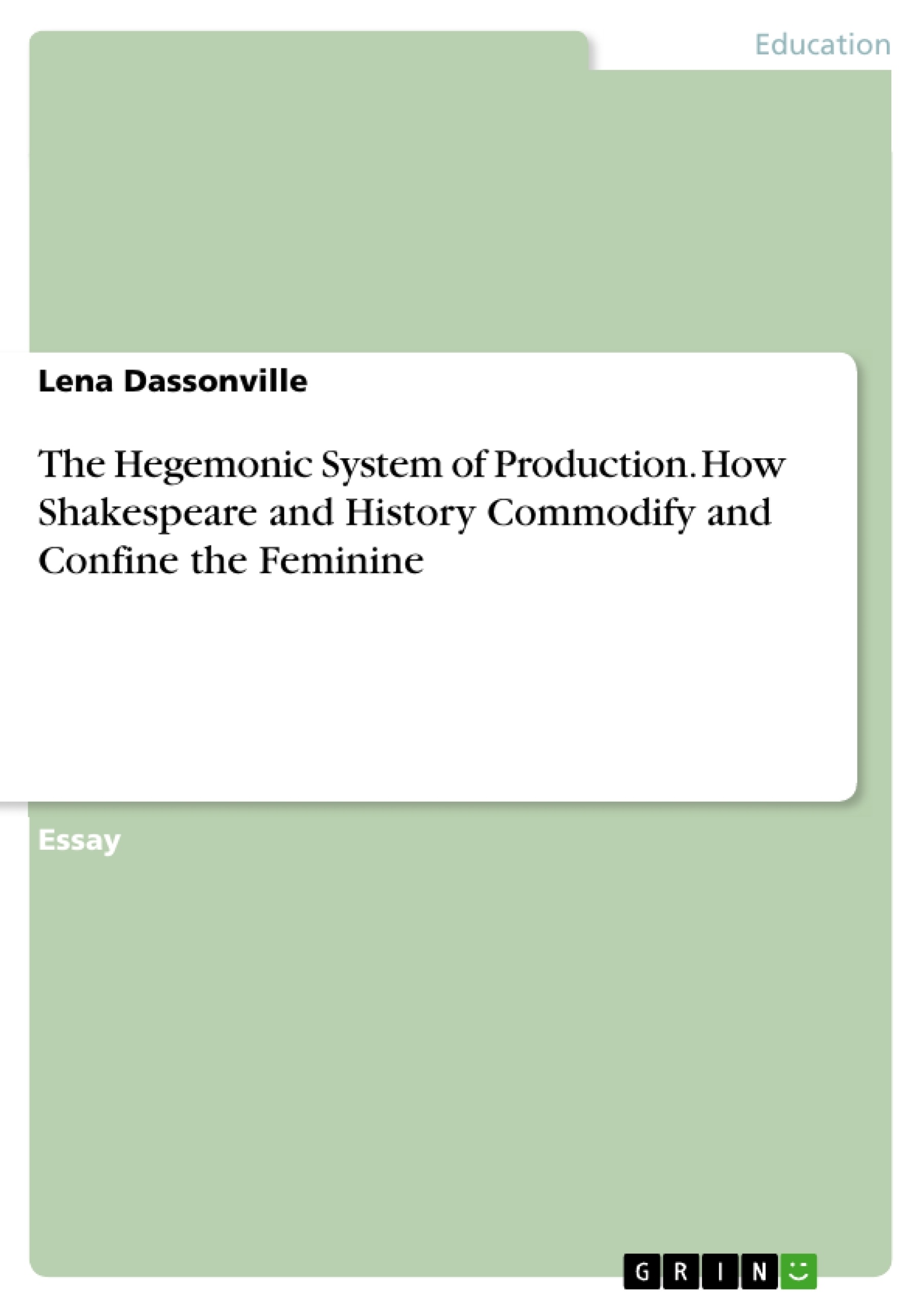Luce Irigaray, a French feminist and theorist, postulated a theory in which gender constitutes an economic exchange. Women become commodities within a patriarchal economic system and their identities are thus derived from their value to men.
Irigaray claims that the female identity is constructed from its commodification in a patriarchal society. Consequently, women are occluded from participating in cultural and socio-economic systems as the feminine can only be represented in relation to men.
This theory of gender as commodity and the various social roles of the female object can be used to analyze to Shakespeare’s The Tempest and Aurora Levins Morales’ Remedios: Stories of Earth and Iron from the History of Puertorriqueñas.
Inhaltsverzeichnis (Table of Contents)
- The Hegemonic System of Production: How Shakespeare and History Commodify and Confine the Feminine
- Irigaray's Theory of Gender as Commodity
- The Tempest: Prospero's Patriarchy and Miranda's Subjugation
- Miranda's Education and Sense of Self
- Miranda's Value as a Virgin
- Remedios: Stories of Earth and Iron from the History of Puertorriqueñas
- The Erasure of Indigenous Female Labor
- Indigenous Women as a Reproductive Labor Force
Zielsetzung und Themenschwerpunkte (Objectives and Key Themes)
This text analyzes the commodification of women within a patriarchal economic system, drawing on Irigaray's theory of gender as commodity. It investigates how Shakespeare's The Tempest and Aurora Levins Morales' Remedios: Stories of Earth and Iron from the History of Puertorriqueñas depict the subjugation and objectification of female characters.
- Irigaray's theory of gender as commodity and its application to literature
- The role of patriarchal power structures in the commodification of women
- The representation of female characters in The Tempest and Remedios
- The social roles imposed upon women: virgin, mother, prostitute
- The relationship between colonialism and the commodification of indigenous women
Zusammenfassung der Kapitel (Chapter Summaries)
The text begins by introducing Irigaray's theory, explaining how gender operates as an economic exchange in a patriarchal society. Women are seen as commodities, their identities derived from their value to men.
The analysis then moves to Shakespeare's The Tempest, focusing on the power dynamic between Prospero and Miranda. Prospero's control over Miranda extends to her education, sense of self, and ultimately, her worth. Her virginity is highlighted as a key aspect of her value, transforming her into a commodity to be traded between men.
The text then shifts to Aurora Levins Morales' Remedios, exploring how the indigenous women of Puerto Rico are depicted as a reproductive labor force under colonial rule. Their value is reduced to their ability to procreate, furthering the idea that women are simply instruments for the production of goods within an oppressive economy.
Schlüsselwörter (Keywords)
The primary keywords and focus topics of this text include: Irigaray, gender, commodification, patriarchy, The Tempest, Remedios, Miranda, Prospero, indigenous women, colonialism, reproduction, social roles, feminist theory.
Frequently Asked Questions
What is Irigaray's theory of gender as a commodity?
Luce Irigaray posits that in patriarchal societies, women function as commodities in an economic exchange between men, meaning their identities and value are defined by their utility to men.
How is Miranda commodified in Shakespeare's "The Tempest"?
Miranda is controlled by her father, Prospero, who manages her education and sense of self. Her virginity is treated as a high-value asset to be traded in a political and social marriage alliance.
What social roles are imposed on women according to this analysis?
The text explores the roles of virgin, mother, and prostitute as categories within a patriarchal system that objectifies the feminine.
How does "Remedios" by Aurora Levins Morales address female labor?
The book highlights the erasure of indigenous female labor and depicts indigenous women as a reproductive labor force used to sustain colonial and patriarchal economies.
What is the link between colonialism and the commodification of women?
Colonialism often reinforces patriarchal structures where indigenous women's value is reduced to their reproductive capacity and labor, further entrenching their status as objects of exchange.
Can women participate in cultural systems according to Irigaray?
Irigaray argues that women are often occluded from full participation because the feminine is only represented in relation to men, rather than as an independent identity.
- Quote paper
- Lena Dassonville (Author), 2016, The Hegemonic System of Production. How Shakespeare and History Commodify and Confine the Feminine, Munich, GRIN Verlag, https://www.grin.com/document/346598



